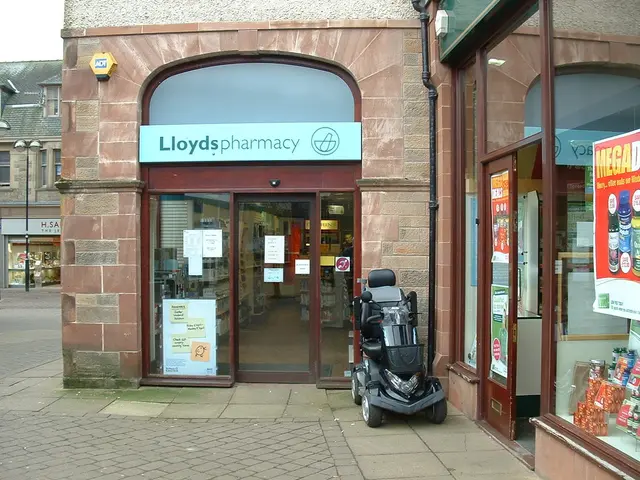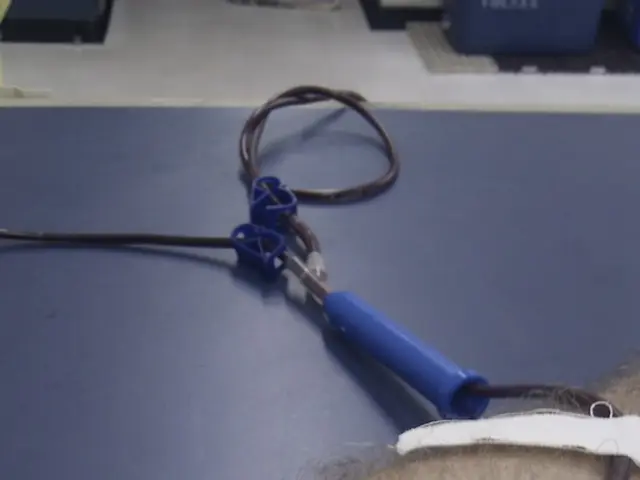Assessing the Value of a Home-Based Colon Cancer Screening Test: Is It Worth the Attempt?
Hitting the Porcelain Throne for Cancer Detection: Is It a Valid Alternative to a Colonoscopy?
Got a few minutes? Let's talk about poop - specifically, the possibility of using it to detect colon cancer. Sounds weird, but hey, we're all adults here.
Now, before you grab your seat and dive right in (no pun intended), remember - this isn't a full-fledged colonoscopy replacement just yet. But a peer-reviewed, medically-approved 'mail-in-shit' test, you say? It's real!
The Lowdown on the Stool Tests
Ever heard of a poop-in-a-box test? Well, ain't that a beauty. At-home stool tests analyze your, well, excrement, searching for abnormal cells and bleeding that could signal cancer or precancerous growths. And yes, collecting said sample is definitely a DIY task. If the idea of handling your own waste doesn't faze you, here's what's on offer.
- Fecal Immunochemical Test (FIT): This bad boy looks for hidden blood lurking in your stool, a possible sign of cancer or polyps. It's an annual test that's reasonably accurate but less so than a colonoscopy.
- Guaiac-based fecal occult blood test (gFOBT): Similar to the FIT, the gFOBT checks for blood too. However, it requires dietary adjustments (like abstaining from red meat) before stool collection.
- Stool DNA testing: Originally seen in science-fiction movies, this test examines DNA strands in your waste for evidence of cancer cells. If you have colon cancer, some of its cells will find their way into your stool, making this test a viable option for screening.
How Well Do Stool Tests Work?
At-home stool tests can spot cancer signs, but they don't hold a candle to a colonoscopy. Here's a quick rundown:
- DNA tests: 92% effective for detecting cancer but have a higher false positive rate than FITs.
- FIT: Nearly 80% accurate.
- gFOBT: About 71% accurate.
When the Results Come Back
You'll be eager for your results, right? Well, be patient. It takes about two weeks. And hey, if the lab flags something 'suspicious,' don't panic. False positives aren't unheard of. Discuss the findings with your doctor, and together you'll decide the next steps.
Colonoscopy vs Stool Tests: Which Should You Trust?
While at-home stool tests offer ease and convenience, they fall short compared to colonoscopies when it comes to detecting precancerous growths. Remember, finding and removing such growths early is key to preventing colon cancer. Therefore, colonoscopy still reigns as the gold standard for cancer screening.
"So, bottom line? In my book, a colonoscopy is always the way to go," recommends Dr. Kanters.
Are Stool Tests Worth It?
Curious about an at-home stool test for colon cancer? Discuss it with your healthcare provider. These tests could be a suitable option for those who have trouble tolerating anesthesia during a colonoscopy, have limited access to medical care, or prefer a non-invasive approach.
However, they're not recommended if you have a family history of colorectal cancer, medical conditions that increase colorectal cancer risk, bloody stool, or unexplained health issues like sudden weight loss or anemia.
"These are all reasons for a full evaluation being performed," adds Dr. Kanters.
When to Start Testing for Colon Cancer
Begin testing for colon cancer at 45 if you're at average risk. This is the age when you should have your first at-home test or colonoscopy.
Wrapping Up
Early detection of colorectal cancer is crucial as symptoms seldom surface during the treatable stages. Screening is vital for identifying issues ahead of any problems. Whether you opt for an at-home test or a colonoscopy, get screened!
"Ultimately, if an at-home test is what gets you screened for cancer, absolutely do it," encourages Dr. Kanters. "They're a great way to determine if something else needs to be done and better understand your risk for possibly having cancer."
Now, that was a gut-wrenching yet informative discussion. Remember, while at-home stool tests offer a convenient screening method, a colonoscopy remains the gold standard for accuracy and comprehensive screening.
So, let's make a pact - take care of your health and get screened for colon cancer. Just remember the phrase: 'Opt for a one-way ticket to health, not a fast train to cancer.' Keep it classy!
- The use of stool tests for detecting chronic diseases such as cancer has gained traction in the field of medical-conditions and health-and-wellness, offering a non-invasive approach to screening.
- As we delve into the realm of nutrition and skin-care, it's essential to remember that maintaining a balanced diet and regular exercise (fitness-and-exercise) plays a crucial role in overall health, including the prevention of chronic-diseases like cancer.
- In addition to stool tests, CBD, a compound derived from cannabis, has shown promise in managing symptoms associated with various medical-conditions, including mental-health disorders and cancer.
- While stool tests can catch signs of cancer, they are not suitable for those with a family history, medical-conditions that increase colorectal cancer risk, or symptoms such as bloody stool or unexplained health issues like sudden weight loss or anemia.
- Besides colonoscopies, other conventional methods for detecting cancer, such as regular check-ups, physical examinations, and diagnostic imaging (like magnetic resonance imaging or MRI), also play a vital role in early detection, critical for effective treatment.
- Proactive steps toward health-and-wellness, including cancer prevention and management, should encompass regular screenings, a balanced diet, fitness-and-exercise, mental-health care, skin-care awareness, and an understanding of the potential benefits of supplements like CBD in managing certain medical-conditions.








